Please fill out the following information, and RRFC Admissions will contact you to discuss our program offerings:
Issue #67
by L. Swift and Jeff McQ


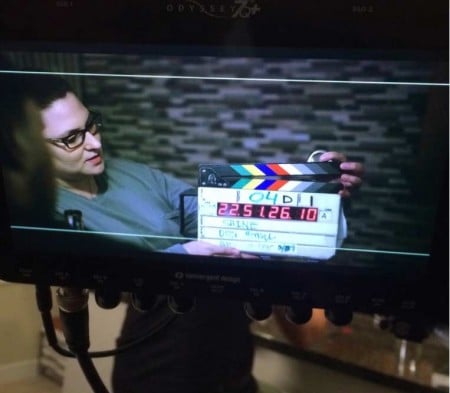 At age 29, by most people’s definition, Kellie Koford of Austin, TX was a woman on the pathway to success. With a stable 9-5 job in the healthcare industry, and a good rapport with her peers, you’d think there was plenty of room for growth and development.
But something was wrong. Kellie Koford wasn’t happy. And she certainly didn’t feel like much of a success.
You see, the backstory is that Kellie never thought of herself as a corporate type of person. Growing up with a strong, gnawing creative streak, Kellie had always dreamed of having a career in some sort of creative industry—a dream that drew her to study interior design in college and to pursue a career in that field. But after jobs in interior design went scarce during the recession, and after a failed attempt at starting her own business, the healthcare job had become the fallback position. So after five years of job security but not a lot of fulfillment, Kellie had an epiphany.
“I just kind of woke up one day,” she says, “and realized that I didn’t want to spend the rest of my life dragging myself out of bed to go to a job that I only kind of liked.”
Kellie had always had a passion for film and TV, but had zero experience in it. “It’s always been one of those things that people scare you away from,” she says. Nevertheless, desire won out over caution, and she began investigating film schools.
At age 29, by most people’s definition, Kellie Koford of Austin, TX was a woman on the pathway to success. With a stable 9-5 job in the healthcare industry, and a good rapport with her peers, you’d think there was plenty of room for growth and development.
But something was wrong. Kellie Koford wasn’t happy. And she certainly didn’t feel like much of a success.
You see, the backstory is that Kellie never thought of herself as a corporate type of person. Growing up with a strong, gnawing creative streak, Kellie had always dreamed of having a career in some sort of creative industry—a dream that drew her to study interior design in college and to pursue a career in that field. But after jobs in interior design went scarce during the recession, and after a failed attempt at starting her own business, the healthcare job had become the fallback position. So after five years of job security but not a lot of fulfillment, Kellie had an epiphany.
“I just kind of woke up one day,” she says, “and realized that I didn’t want to spend the rest of my life dragging myself out of bed to go to a job that I only kind of liked.”
Kellie had always had a passion for film and TV, but had zero experience in it. “It’s always been one of those things that people scare you away from,” she says. Nevertheless, desire won out over caution, and she began investigating film schools.
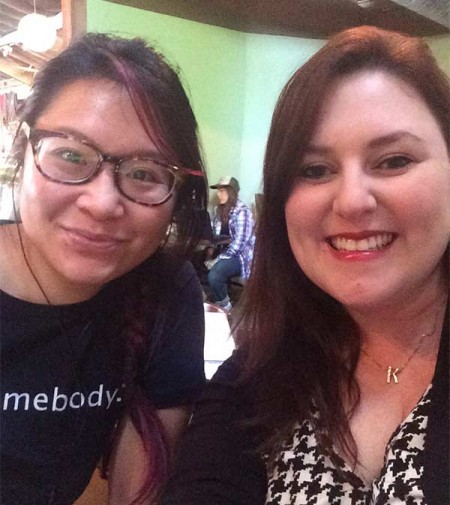 It turned out her answer was practically in her own backyard. After getting accepted into a program at the Glasgow Caledonian University in Scotland—and balking at the $60,000-per-year price tag—she ran across the Film Connection, who paired her with mentor Christine Chen of Moth to Flame Films, a successful film and video production company in Austin.
“I went and interviewed with her,” says Kellie. “and I let her know that I had absolutely no background in the film industry at all, but that I do have a background in interior design, I’m familiar with computers and catch on pretty quickly. So she seemed to be okay with that and decided to take me on…She’s been very patient with me, which I appreciate. And she’s taught me tons already.”
In a number of ways, Kellie’s apprenticeship as proven to be a huge turning point for her. Firstly, thanks to Christine’s business model of doing everything from commercial work to music videos to features, Moth to Flame is an example of what a sustainable film business can look like (so much for “only a few get to make it.”). Secondly, just a few months into her apprenticeship, Kellie is gaining huge amounts of experience with a variety of film projects, from editing video for corporate clients to being on-set for a speech by Whole Foods co-founder John Mackey. And thirdly, her passion has even impressed Christine to the point that she bragged on Kellie during a recent interview with RRFC.
“I’m not going to lie; I started crying when my mentor mentioned my name,” says Kellie. “It really meant a lot to read that, especially since I’m the student that came in knowing ZERO about the industry.”
That’s not even the best of it. As proof positive that Kellie is no longer the student who knows “zero” about film, just fifteen weeks into her apprenticeship, she has leveraged her newfound skills into a new job doing video work and other tasks for a spiritual teacher, psychic medium and Reiki master—a job that has even enabled her to resign from her position in the healthcare industry! “My new role will allow me to do what I’ve longed to do for a while now, which is combine the spiritual/inspirational with film,” she writes in her blog. “I put in my resignation at my current job directly after my new boss offered me the position…I can already tell we’re going to make a great team. She also knows several people within the film industry, which makes for great networking.”
Now well on the path to making a living doing what she loves, Kellie feels a lot more successful than she did in the corporate world. Her advice to other apprentices? “Be a sponge,” she says. “Absorb everything that your mentor teaches you. And don’t be afraid to ask questions…There’s been times where I’ll be like, ‘I hope she’s not getting annoyed with me.’ They’re your mentor for a reason, and they are willing to help. And that’s what they’re there for, so I’d say take advantage of the time that you have with them.”
Kellie Koford’s story is a great example of what passion and drive can achieve in a film career; it’s also proof that it’s never too late to start pursuing your dreams. “A big thanks to RRFC for taking interest in their students and their mentors,” she says. “And a big thanks to the awesome Christine Chen for being patient with my newness. I’m having the time of my life learning everything so far!”
It turned out her answer was practically in her own backyard. After getting accepted into a program at the Glasgow Caledonian University in Scotland—and balking at the $60,000-per-year price tag—she ran across the Film Connection, who paired her with mentor Christine Chen of Moth to Flame Films, a successful film and video production company in Austin.
“I went and interviewed with her,” says Kellie. “and I let her know that I had absolutely no background in the film industry at all, but that I do have a background in interior design, I’m familiar with computers and catch on pretty quickly. So she seemed to be okay with that and decided to take me on…She’s been very patient with me, which I appreciate. And she’s taught me tons already.”
In a number of ways, Kellie’s apprenticeship as proven to be a huge turning point for her. Firstly, thanks to Christine’s business model of doing everything from commercial work to music videos to features, Moth to Flame is an example of what a sustainable film business can look like (so much for “only a few get to make it.”). Secondly, just a few months into her apprenticeship, Kellie is gaining huge amounts of experience with a variety of film projects, from editing video for corporate clients to being on-set for a speech by Whole Foods co-founder John Mackey. And thirdly, her passion has even impressed Christine to the point that she bragged on Kellie during a recent interview with RRFC.
“I’m not going to lie; I started crying when my mentor mentioned my name,” says Kellie. “It really meant a lot to read that, especially since I’m the student that came in knowing ZERO about the industry.”
That’s not even the best of it. As proof positive that Kellie is no longer the student who knows “zero” about film, just fifteen weeks into her apprenticeship, she has leveraged her newfound skills into a new job doing video work and other tasks for a spiritual teacher, psychic medium and Reiki master—a job that has even enabled her to resign from her position in the healthcare industry! “My new role will allow me to do what I’ve longed to do for a while now, which is combine the spiritual/inspirational with film,” she writes in her blog. “I put in my resignation at my current job directly after my new boss offered me the position…I can already tell we’re going to make a great team. She also knows several people within the film industry, which makes for great networking.”
Now well on the path to making a living doing what she loves, Kellie feels a lot more successful than she did in the corporate world. Her advice to other apprentices? “Be a sponge,” she says. “Absorb everything that your mentor teaches you. And don’t be afraid to ask questions…There’s been times where I’ll be like, ‘I hope she’s not getting annoyed with me.’ They’re your mentor for a reason, and they are willing to help. And that’s what they’re there for, so I’d say take advantage of the time that you have with them.”
Kellie Koford’s story is a great example of what passion and drive can achieve in a film career; it’s also proof that it’s never too late to start pursuing your dreams. “A big thanks to RRFC for taking interest in their students and their mentors,” she says. “And a big thanks to the awesome Christine Chen for being patient with my newness. I’m having the time of my life learning everything so far!”
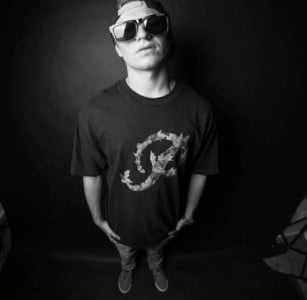
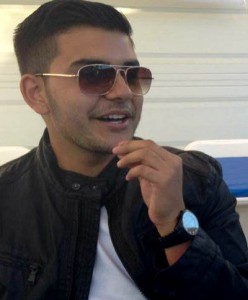 Recording Connection apprentice Tanner Bjorklund (T-Strix) and master’s program student Rodolfo Lopez (R-Lo) have spent the last 5 months building tracks for their album. They’re currently working through mastering the project now, with R-Lo as engineer, and they’ve teamed up with Thirty3Films for the music video launch. Album hits July 6th, 2015!
Recording Connection apprentice Tanner Bjorklund (T-Strix) and master’s program student Rodolfo Lopez (R-Lo) have spent the last 5 months building tracks for their album. They’re currently working through mastering the project now, with R-Lo as engineer, and they’ve teamed up with Thirty3Films for the music video launch. Album hits July 6th, 2015!
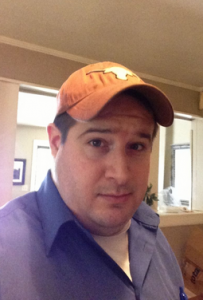
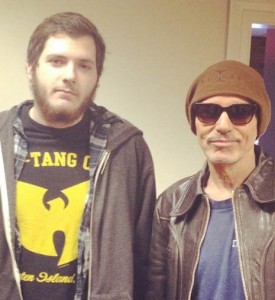 Film Connection apprentices Matt Gibson and Jamie Reed are joining their mentor Zac Adams and Billy Bob Thornton on the feature documentary Iron Will which tells the stories of soldiers dealing with PTSD. See Apprentice Media section for more info.
Film Connection apprentices Matt Gibson and Jamie Reed are joining their mentor Zac Adams and Billy Bob Thornton on the feature documentary Iron Will which tells the stories of soldiers dealing with PTSD. See Apprentice Media section for more info.
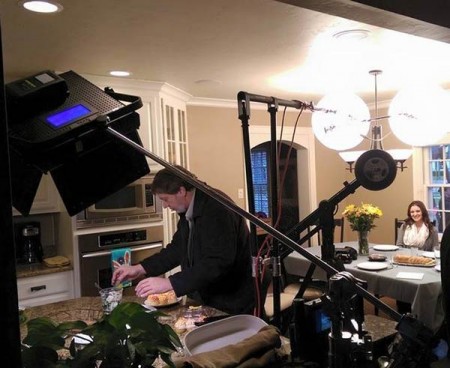 Film Connection apprentice Jocelyne Berumen had an educational experience while shadowing and assisting the grip on the second production shoot for a Festival Foods Commercial. On the day of the shoot, the weather was bad, with temps in the low 40s, rainy, windy and chilly with intermittent periods of sun. In order to grab those essential exterior shots, the moment it stopped raining, Jocelyne says, “The crew ran outside and attempted to shoot what they could before the next short rain would fall.” The pros always get their shot!
Film Connection apprentice Jocelyne Berumen had an educational experience while shadowing and assisting the grip on the second production shoot for a Festival Foods Commercial. On the day of the shoot, the weather was bad, with temps in the low 40s, rainy, windy and chilly with intermittent periods of sun. In order to grab those essential exterior shots, the moment it stopped raining, Jocelyne says, “The crew ran outside and attempted to shoot what they could before the next short rain would fall.” The pros always get their shot!
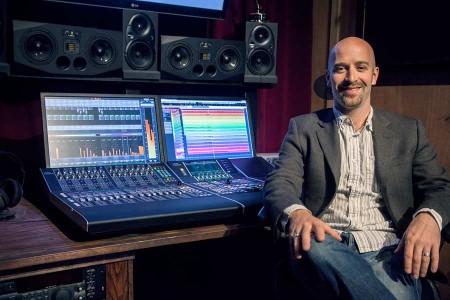 It’s easy to assume that as an audio engineer or music producer, there wouldn’t be enough to keep you busy in a place like Bozeman, Montana. And you’d also probably assume it wouldn’t be a great place to learn the music industry.
But apparently, Recording Connection mentor Jeremiah Slovarp never got that memo. A guy with a strong business sense and work ethic, he’s managed to build not one, but two successful studios: Jereco Studios and Peach Street Studios. He’s also become the go-to guy in the area for sound recording, post-production, location sound and live audio, running one of the region’s busiest post-production houses for TV and film. He works with more celebrities and bands than he cares to name, and he’s won four Emmy Awards for his post-production audio work both regionally and nationally. And best of all, he loves to teach his students the secrets of his success!
Yes. Just to be clear, we’re talking Bozeman, Montana, not L.A.
So how did a kid at Montana State University-Bozeman wind up being one of the area’s most successful audio engineers? Like so many in this profession, it started with music.
“I was a singer in a filthy dirty rock band,” says Jeremiah. “No one in the band cared about sound, and I did, and so I started dealing with the sound at all the concerts and the shows.”
It’s easy to assume that as an audio engineer or music producer, there wouldn’t be enough to keep you busy in a place like Bozeman, Montana. And you’d also probably assume it wouldn’t be a great place to learn the music industry.
But apparently, Recording Connection mentor Jeremiah Slovarp never got that memo. A guy with a strong business sense and work ethic, he’s managed to build not one, but two successful studios: Jereco Studios and Peach Street Studios. He’s also become the go-to guy in the area for sound recording, post-production, location sound and live audio, running one of the region’s busiest post-production houses for TV and film. He works with more celebrities and bands than he cares to name, and he’s won four Emmy Awards for his post-production audio work both regionally and nationally. And best of all, he loves to teach his students the secrets of his success!
Yes. Just to be clear, we’re talking Bozeman, Montana, not L.A.
So how did a kid at Montana State University-Bozeman wind up being one of the area’s most successful audio engineers? Like so many in this profession, it started with music.
“I was a singer in a filthy dirty rock band,” says Jeremiah. “No one in the band cared about sound, and I did, and so I started dealing with the sound at all the concerts and the shows.”
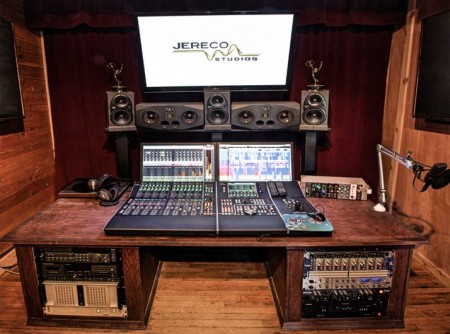 Being business minded didn’t hurt, either. While studying economics at the university, his continued interest in sound led him to take an elective course in film sound, and while working on some post-production projects, his instructor gave him some advice.
“He motivated me and said, ‘You know, there is good market for this in this area, you should really think about this,'” Jeremiah recalls. “Because I was business minded, and none of his other students were. All his other students were just film and TV minded and none of them were going to go off and start a business-they were going to go to LA and try to find a job. And I wanted to start a business, and I didn’t want to look for a job.”
It turned out there was a good market for post-production sound—a surprisingly good market for such a rural area. And Jeremiah decided to tap into it, by focusing on commercial audio work. “Because we are a commercial location, we’ve excelled at attracting commercial clientele, and it only made sense,” he says. “Yeah, you know, we still record music and we compete for the music market in the area, but the commercial clientele has really come to us naturally because of the way we do business and having [a] commercial clientele location.”
And it’s not just in and around Bozeman, either. Jeremiah says he gets post audio work from major productions around the world, for a surprisingly simple reason: Montana is a favorite hotspot for the actors who do the audio. “The actors and actresses that are stars in the film, they either live here or, you know, this is a vacation place for them,” says Jeremiah. “[They] don’t want to fly to L.A. to interrupt a vacation with their family, or because they live here flat out. Like Jeff Bridges and Michael Keaton…they live a matter of minutes from where I’m sitting right now, full-time, year-round, and they are not going to fly to L.A. to go to work.”
This dynamic (along with talent, of course) is in part what led to Jeremiah’s Emmy Awards. “We were a little town out of Montana that happens to have a huge production film and television and music production community,” he says, “going into major markets like Seattle and stealing their award because we competed with the best market.”
As far as his success goes, Jeremiah tells his Recording Connection apprentices that the key to succeeding in professional audio in a place like Montana is diversity.
“My students get a unique opportunity in [Bozeman] versus a very large, densely populated city,” he says. “Because Montana is such a vast area to work in, we are not doing the same thing every day. I don’t just record bands. If a student comes to me and he’s like, ‘I’m going to be a music producer,’ I say, “Hey hang on, if you are going to live in Montana, you better not just be a music producer because you’ll never make it.” You could produce music and you could also do some other things that are using the same skill set and do very well for yourself. You can work on a live concert. You can work on a TV show. You can work on corporate gig for someone at a hotel and do AV work. You can do installation work when this people are installing home studios…a diverse set of jobs recycling the same skill set…When they are with me, that is what they are getting.”
Being business minded didn’t hurt, either. While studying economics at the university, his continued interest in sound led him to take an elective course in film sound, and while working on some post-production projects, his instructor gave him some advice.
“He motivated me and said, ‘You know, there is good market for this in this area, you should really think about this,'” Jeremiah recalls. “Because I was business minded, and none of his other students were. All his other students were just film and TV minded and none of them were going to go off and start a business-they were going to go to LA and try to find a job. And I wanted to start a business, and I didn’t want to look for a job.”
It turned out there was a good market for post-production sound—a surprisingly good market for such a rural area. And Jeremiah decided to tap into it, by focusing on commercial audio work. “Because we are a commercial location, we’ve excelled at attracting commercial clientele, and it only made sense,” he says. “Yeah, you know, we still record music and we compete for the music market in the area, but the commercial clientele has really come to us naturally because of the way we do business and having [a] commercial clientele location.”
And it’s not just in and around Bozeman, either. Jeremiah says he gets post audio work from major productions around the world, for a surprisingly simple reason: Montana is a favorite hotspot for the actors who do the audio. “The actors and actresses that are stars in the film, they either live here or, you know, this is a vacation place for them,” says Jeremiah. “[They] don’t want to fly to L.A. to interrupt a vacation with their family, or because they live here flat out. Like Jeff Bridges and Michael Keaton…they live a matter of minutes from where I’m sitting right now, full-time, year-round, and they are not going to fly to L.A. to go to work.”
This dynamic (along with talent, of course) is in part what led to Jeremiah’s Emmy Awards. “We were a little town out of Montana that happens to have a huge production film and television and music production community,” he says, “going into major markets like Seattle and stealing their award because we competed with the best market.”
As far as his success goes, Jeremiah tells his Recording Connection apprentices that the key to succeeding in professional audio in a place like Montana is diversity.
“My students get a unique opportunity in [Bozeman] versus a very large, densely populated city,” he says. “Because Montana is such a vast area to work in, we are not doing the same thing every day. I don’t just record bands. If a student comes to me and he’s like, ‘I’m going to be a music producer,’ I say, “Hey hang on, if you are going to live in Montana, you better not just be a music producer because you’ll never make it.” You could produce music and you could also do some other things that are using the same skill set and do very well for yourself. You can work on a live concert. You can work on a TV show. You can work on corporate gig for someone at a hotel and do AV work. You can do installation work when this people are installing home studios…a diverse set of jobs recycling the same skill set…When they are with me, that is what they are getting.”
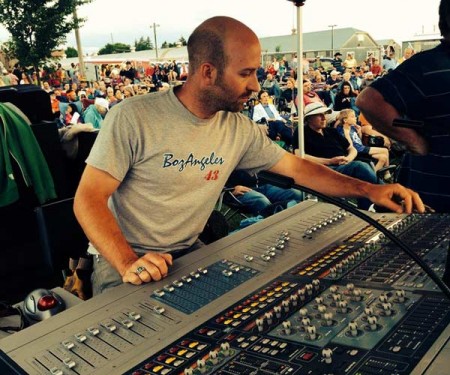 One great example of how Jeremiah uses this diversity to show his Recording Connection students how to “recycle” their skill sets: using his live audio events to teach them about building a studio.
“When people need sound for a concert, I’m always one of the contractors that gets the bid on the job,” he says. “So I make these guys work on live concerts with me because on the night of concerts, they are plugging everything in, and then they are plugging it back in and then unplugging and plugging it back in. When you walk into a recording studio, you don’t learn anything [about that] because you are not behind the desk looking at the wires…I think it’s a disservice to a student to walk into a recording studio and not be able to understand how the recording studio is built. Okay, so let’s flip this now. We take them on a live concert; it’s the same gear. We got a mixing console, we got mic pre’s, we got in, we got out, we got speakers, we got monitors…They are building it from the ground up at the beginning of the show, and then they have to tear the whole thing down and wrap cables at the end of the show, and then tomorrow that is what we do: we build the whole thing again. And through that repetition, they are able to learn and solidify the stuff that they see in the white papers.”
Jeremiah not only sees this kind of experience as important for his students, but he also sees it as something that can’t be gotten in a classroom—which is one of the reasons he takes on apprentices with the Recording Connection. “I like one-on-one interaction,” he says. “It certainly gives the student some more in-depth discussion than in a larger academic environment.”
He also stresses that the hands-on learning is key, not only to learning the skill, but to succeeding in this business at all. “They need to do it on their own,” says Jeremiah. “And they need to understand that like if they are going to do it, they are going to do it because of them, not because of me. I might show them the way, but I’m not going to do their job for them.”
One great example of how Jeremiah uses this diversity to show his Recording Connection students how to “recycle” their skill sets: using his live audio events to teach them about building a studio.
“When people need sound for a concert, I’m always one of the contractors that gets the bid on the job,” he says. “So I make these guys work on live concerts with me because on the night of concerts, they are plugging everything in, and then they are plugging it back in and then unplugging and plugging it back in. When you walk into a recording studio, you don’t learn anything [about that] because you are not behind the desk looking at the wires…I think it’s a disservice to a student to walk into a recording studio and not be able to understand how the recording studio is built. Okay, so let’s flip this now. We take them on a live concert; it’s the same gear. We got a mixing console, we got mic pre’s, we got in, we got out, we got speakers, we got monitors…They are building it from the ground up at the beginning of the show, and then they have to tear the whole thing down and wrap cables at the end of the show, and then tomorrow that is what we do: we build the whole thing again. And through that repetition, they are able to learn and solidify the stuff that they see in the white papers.”
Jeremiah not only sees this kind of experience as important for his students, but he also sees it as something that can’t be gotten in a classroom—which is one of the reasons he takes on apprentices with the Recording Connection. “I like one-on-one interaction,” he says. “It certainly gives the student some more in-depth discussion than in a larger academic environment.”
He also stresses that the hands-on learning is key, not only to learning the skill, but to succeeding in this business at all. “They need to do it on their own,” says Jeremiah. “And they need to understand that like if they are going to do it, they are going to do it because of them, not because of me. I might show them the way, but I’m not going to do their job for them.”
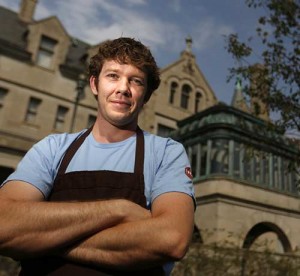 “I believe CASA Schools provides a cutting-edge approach to culinary education. Real world experience is what students need. With the number of students enrolling in traditional culinary schools, the ratio of students to instructors is being stretched to the point of reduced efficiency. One can learn from books, but real experience is gained through hands-on work.”
— Daniel Fitzgerald, Culinary Arts Instructor at Los Angeles Unified School District 2000-Present, Former Sous Chef at the Marriott Marquis, New York City
“I believe CASA Schools provides a cutting-edge approach to culinary education. Real world experience is what students need. With the number of students enrolling in traditional culinary schools, the ratio of students to instructors is being stretched to the point of reduced efficiency. One can learn from books, but real experience is gained through hands-on work.”
— Daniel Fitzgerald, Culinary Arts Instructor at Los Angeles Unified School District 2000-Present, Former Sous Chef at the Marriott Marquis, New York City
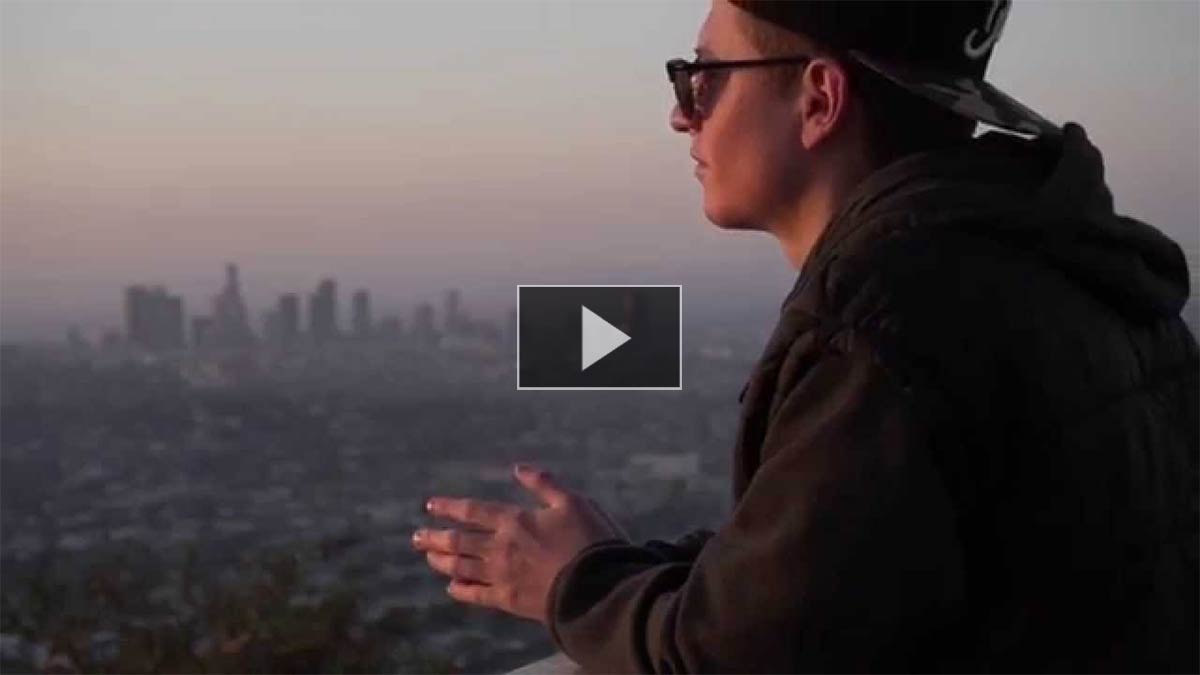


RRFC is education upgraded for the 21st century.
Get the latest career advice, insider production tips, and more!
Please fill out the following information, and RRFC Admissions will contact you to discuss our program offerings:
Stay in the Loop: Subscribe for RRFC news & updates!
© 2025 Recording Radio Film Connection & CASA Schools. All Rights Reserved.
